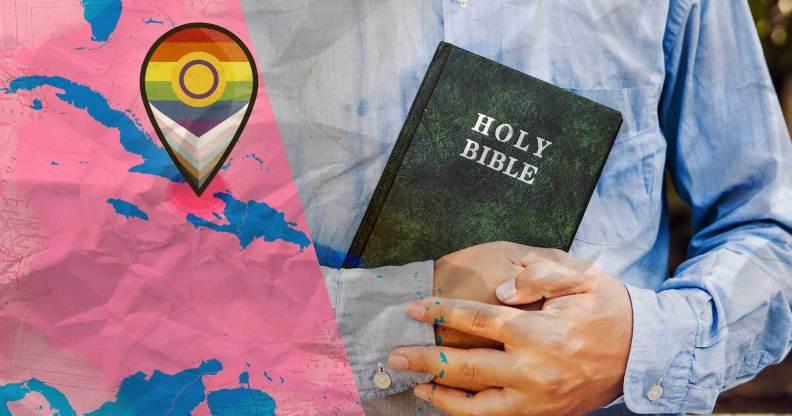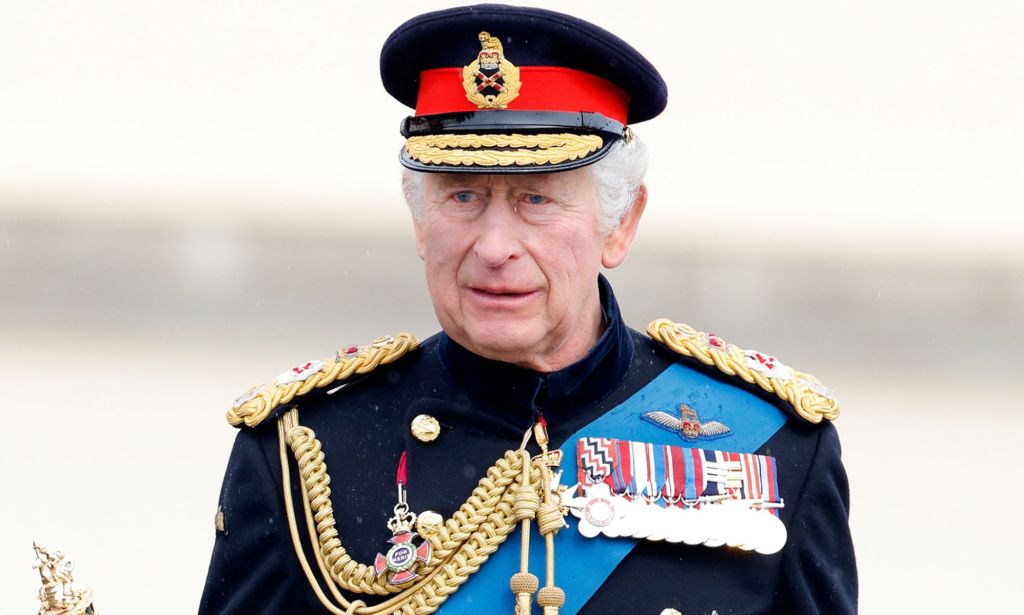The Caribbean is shaking off the monarchy – but ‘imported’ Christianity still fuelling homophobia

Christian missionaries are still importing homophobia into the Caribbean. (Getty)
As King Charles’ coronation approaches, many Caribbean countries are considering a future without the monarchy.
Charles will be anointed king during his coronation on Saturday (8 May), not just of the UK, but of 14 other Commonwealth realms.
Eight of these realms are Caribbean nations once colonised by the British.
Six – Belize, the Bahamas, Jamaica, Grenada, Antigua and Barbuda and Saint Kitts and Nevis – signalled plans to become republics in 2022, following Barbados’ lead. Many would like an apology from the British Royal Family for its complicity in colonialism.
The region is still contending with the legacy of the British empire – for LGBTQ+ Caribbeans, this is felt keenly in the homophobic laws and attitudes it left behind.
At the height, the British empire had colonies on every continent, save Antarctica. Christian fundamentalism was implemented as the core belief system, and laws were introduced that made same-sex relations an imprisonable offence. Politicians and judges are working to undo these laws to this very day – but it’s no easy task.
Kenita Placide, executive director of the Eastern Caribbean Alliance for Diversity and Equality (ECADE), tells PinkNews there’s been “cultural shifts” over the last 20 years on LGBTQ+ acceptance and equality.
But the combination of law and religion has proved to be a resilient one in shaping attitudes.
“That is why it’s so difficult because that is one aspect of the Bible, not the only, but one of the aspects of the Bible that’s actually entrenched in law…. Both [the Bible and the law] push through to say that what you’re doing is illegal, what you’re doing is sinful and that pushes you in that kind of activity,” they explain.
“One thing people do not understand, the Caribbean has a foundation of religion through our colonial time, and anyone in the past who actually found themselves attracted to the same-sex basically beat themselves up because that’s not what they were raised to believe.
“They didn’t understand why their feelings were different from other people in terms of what we call normal.
“By the time society decides to hit them, they have already hit themselves for being different in the first place.
“So our work also had to be with the community around self-love, self-care, self acceptance – and the journey for every single person is different.”
Placide says that familial and social rejection of LGBTQ+ people is often couched in religious terms, influenced by church rhetoric.
They add that the enslavement of people in the Caribbean also has a lingering effect.
“As a measure of controlling men particularly, they were raped in a slave culture, and so that has left behind its own trauma in addition to that of religion,” Placide says.
LGBTQ+ Caribbean still impacted by ‘imported’ Christianity
When analysing the impact of religion, Placide says it’s important to consider its “continuous import” from groups in the US, UK and Canada.
She explains fundamentalist groups still come to the Caribbean to preach and “push back against” LGBTQ+ rights and other rights because “they have already lost the war” in their home countries.
“Now, they need to find other grounds to conquer. I think that’s also passionately what is happening,” they say.
A lot of those groups are also pushing back on women’s autonomy and rights, Placide notes.
“Thinking about pregnancy and abortions and sex work, all of those things are said to be illegal in some of our countries, but it’s the very same groups that are pushing it from a religious point.”

Queen Elizabeth II died less than a year after Barbados removed her as its head of state and became a republic in 2021. The move was born, in part, from growing criticism of the monarchy among Caribbean countries and the lengthy history of oppression people in these areas faced under colonial rule.
In December, the country’s LGBTQ+ community celebrated another historic move after the High Court undid its colonial-era homosexuality laws, which criminalised consensual same-sex intimacy.
It followed decisions from courts in Antigua and Barbuda and St Kitts and Nevis to overturn colonial laws criminalising LGBTQ+ people earlier in 2022.
The Barbados ruling was the result of local and regional efforts to challenge anti-LGBTQ+ legislation, and it was spearheaded in part by ECADE. The group urged other Caribbean countries to follow Barbados to protect queer people from these outdated and hateful laws.
While there is much to be done in making the Caribbean a safer place for LGBTQ+ people, Placide says the region has a beautiful, vibrant queer culture filled with music and celebration.
“The one thing I love to see in our LGBT community, and that’s continuously visible and flourishing is their creativity,” they add.
“The creativity in the art speaks for itself. Whether it’s in them performing or them creating, it is there.”
They add: “I think this is where some of the other motivation comes in. How do we continue creating that space that allows people to advance themselves, but more so enjoy their livelihood, enjoy themselves as a citizen of a country?
“We have 26 organisations doing brilliant work across the islands, and so by their registration and their existence and serving the population, it means that we [are] also doing a thing in the right direction.”
How did this story make you feel?

